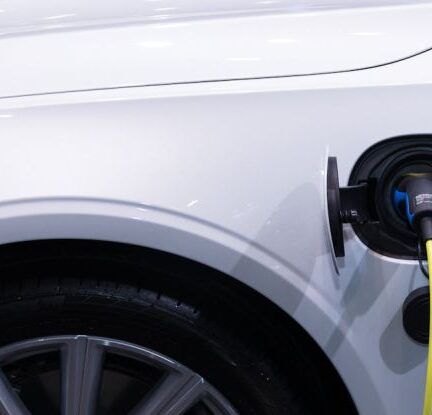In the ever-evolving world of automotive technology, the rise of hybrid and electric vehicles has been a prominent trend in recent years. Both types of vehicles offer eco-friendly alternatives to traditional gasoline-powered cars, but they operate in distinct ways. Understanding the differences between hybrid and electric cars can help consumers make informed decisions when considering a switch to a more sustainable mode of transportation.
**Power Source**
Hybrid cars combine the use of a gasoline engine with an electric motor and a battery pack. These vehicles can switch seamlessly between the two power sources or operate in conjunction, depending on driving conditions. In contrast, electric cars, also known as battery electric vehicles (BEVs), rely solely on electricity stored in a large battery pack to power an electric motor. This fundamental difference in power sources leads to varying driving experiences and maintenance requirements for each type of vehicle.
**Driving Range**
One of the most significant differences between hybrid and electric cars is their driving range. Hybrid vehicles have the advantage of a gasoline engine that can provide extended range when the battery is depleted. This dual power source allows hybrid cars to travel long distances without the need for frequent recharging. On the other hand, electric cars have a limited driving range that is determined by the capacity of their battery pack. While advancements in battery technology have extended the range of electric vehicles in recent years, they still require more planning for longer trips or access to charging infrastructure along the way.
**Charging Infrastructure**
Another key distinction between hybrid and electric cars is the charging infrastructure required to keep them running. Hybrid vehicles do not need to be plugged in for charging since their battery pack is recharged through regenerative braking and the gasoline engine. This convenience makes hybrids a more practical choice for consumers who may not have easy access to charging stations or a dedicated home charger. In contrast, electric cars rely on external charging stations or home chargers to replenish their battery pack. The availability of charging infrastructure can significantly impact the usability and convenience of electric vehicles for daily commuting and long-distance travel.
**Environmental Impact**
Both hybrid and electric cars offer environmental benefits compared to traditional gasoline-powered vehicles. Hybrid cars reduce fuel consumption and emissions by utilizing electric power during low-speed driving or in stop-and-go traffic. This hybrid technology helps improve fuel efficiency and reduce greenhouse gas emissions, making hybrids a more eco-friendly option for environmentally conscious drivers. Electric cars, on the other hand, produce zero tailpipe emissions and are considered the cleanest option for reducing air pollution and combating climate change. By eliminating the use of gasoline altogether, electric vehicles contribute to a significant reduction in carbon emissions and reliance on fossil fuels.
**Cost Considerations**
When comparing hybrid and electric cars, cost considerations play a crucial role in the decision-making process for consumers. Hybrid vehicles tend to have a lower upfront cost than electric cars, making them a more accessible option for budget-conscious buyers. Additionally, hybrids do not require expensive charging infrastructure or specialized equipment for maintenance, which can further lower the overall cost of ownership. Electric cars, while initially more expensive, may qualify for government incentives and tax credits that can offset the higher purchase price. Moreover, the lower operating costs of electric vehicles, including savings on fuel and maintenance, can make them a more cost-effective choice in the long run.
**In Conclusion**
The differences between hybrid and electric cars extend beyond their power sources and driving range to encompass charging infrastructure, environmental impact, and cost considerations. While hybrid vehicles offer a versatile and familiar driving experience with the added benefit of improved fuel efficiency, electric cars provide a zero-emission solution for environmentally conscious drivers. Ultimately, the choice between a hybrid and electric vehicle depends on individual preferences, driving habits, and access to charging infrastructure. By weighing these factors carefully, consumers can make an informed decision that aligns with their lifestyle and values.
